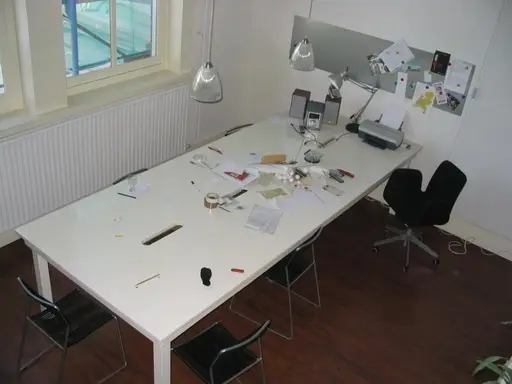Michael Uwemedimo
writer, curator and member of Vision Machine, London
Michael Uwemedimo (born 1972) is a writer and curator, and a founding member of the filmmaking collaboration, Vision Machine. Currently he is a lecturer in film at Roehampton University, London, where he also leads a film distribution initiative, unR
Michael Uwemedimo (born 1972) is a writer and curator, and a founding member of the filmmaking collaboration, Vision Machine. Currently he is a lecturer in film at Roehampton University, London, where he also leads a film distribution initiative, unReal. Uwemedimo’s latest writings appear in (selection): Fluid Screens/Expanded Cinema (2007); Building Bridges: The Cinema of Jean Rouch (2007); Jean-Luc Godard: Documents (2006); and the forthcoming monograph, The Interview. Recent curatorial projects include: After the Fact, BFI Southbank, London, 2007; Jean-Luc Godard: A Retrospective, NFT/Tate Modern, London, 2001; and Possessing Vision: The Cinema of Jean Rouch, ICA, London,During his Research-in-Residence, Uwemedimo worked on a small book about cinema’s ability to pose questions and to call into question. The writing is an exploration of the forms and objects of a particular cinema’s social curiosity and its encounter with novel modes of social research in France after World War II—with the instruments of sociological inquiry, with forms of industrial investigation into behavior and desire, and with the apparatus of political interest in opinion. It is a book concerned with the image and the poetics of interrogation, of asking questions; it is a history of curiosity.For a public seminar at BAK in November (with Rod Dickinson and Steve Rushton), Uwemedimo also explored some of the responses of contemporary artists to now largely abandoned dramaturgical methods of social research. From the fifties through to the eighties a controversial form of experimental theatrics marked the research methods of social psychology. The social psychology approach of performance-as-experiment has now re-emerged in the experimental performance methods of many contemporary artists—sometimes as meticulous re-enactments of the experiments themselves, but also more broadly in performative explorations of institutional structure, disciplinary authority, and the spectacle of knowledge, as well as through events that “subject” and surveil the spectator in often traumatic ways, and subsequently staging the event’s “data” or “findings.”
